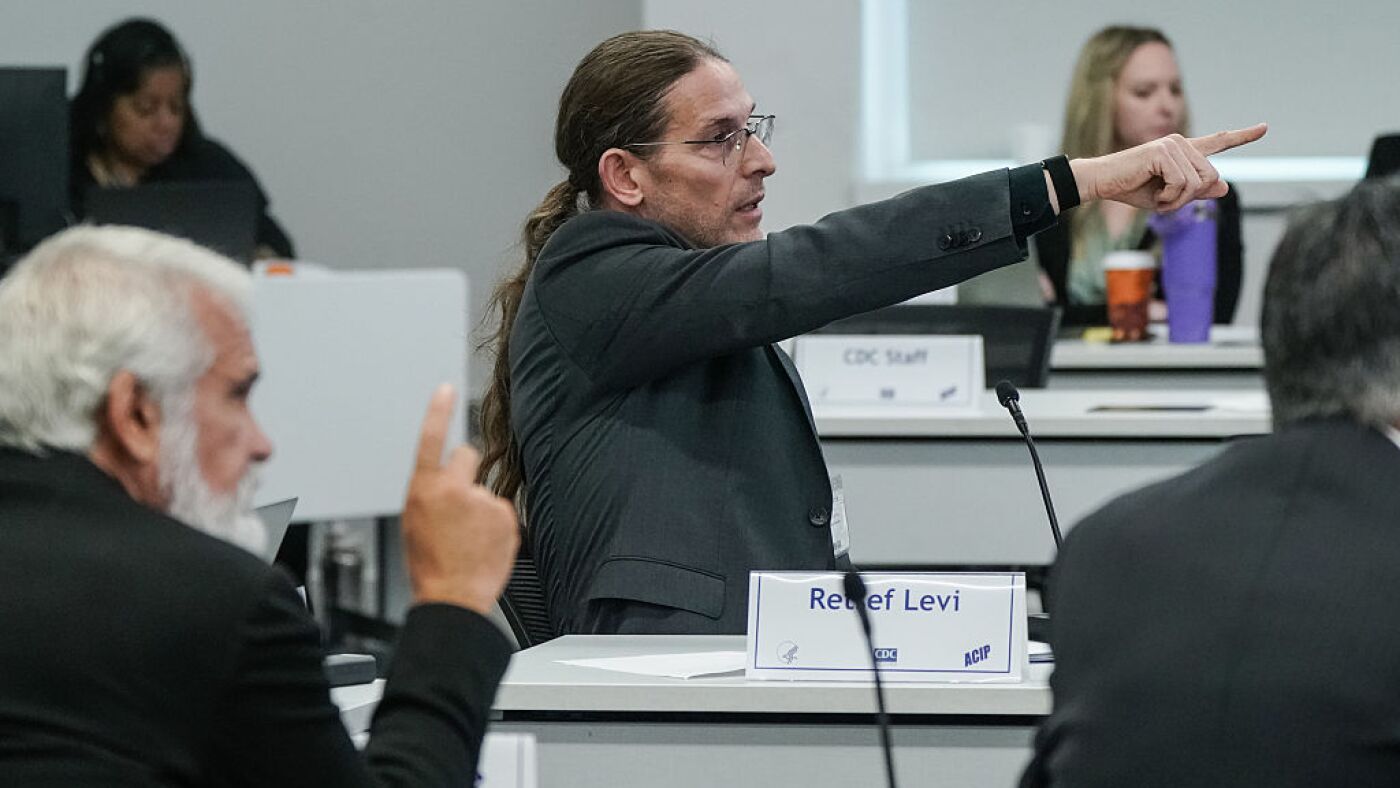A federal advisory panel debated changes to COVID-19 vaccine policy on Friday in a chaotic meeting marked by procedural confusion, technical issues, and sharp disagreements among members and medical experts.
The Advisory Committee on Immunization Practices (ACIP) ultimately retracted its most controversial proposal, which would have required a prescription for a COVID-19 vaccine. However, the committee’s final recommendations could still reduce vaccine availability compared to previous years.
The panel, which advises the Centers for Disease Control and Prevention, voted to recommend vaccination for adults aged 65 and older. For younger individuals, it endorsed “shared decision-making,” a process requiring patients to consult with a clinician about the specific risks and benefits before receiving the shot. While this does not prohibit anyone over six months from getting vaccinated, it shifts away from a universal recommendation.
“In the prior seasons of COVID, we’ve had routine vaccine access,” said Jen Kates, director of global health and HIV policy at KFF. She explained that Friday’s vote means the vaccine is “no longer routinely recommended,” calling it a “more narrow recommendation” than in the past.
The ACIP recommendation specifies that for people under 65, the clinical consultation should emphasize that benefits are greatest for those at high risk of severe disease. The advisors also voted for the CDC to add information about potential risks and effectiveness uncertainties to vaccine information sheets, including some concerns that were speculative or have been previously debunked.
The meeting highlighted the turbulent, politicized state of vaccine policy under Health Secretary Robert F. Kennedy Jr. The proposal to require prescriptions failed after a tie-breaking vote from chairman Martin Kulldorff. During the heated debate, opponents warned the measure would overwhelm physician offices and create significant access barriers for the underinsured or those without primary care providers.
“If we start asking for prescriptions for vaccines — which are a primary prevention public health strategy — we are going to overwhelm physicians’ offices,” argued Dr. Amy Middleman of the Society for Adolescent Health and Medicine.
Earlier this year, Kennedy replaced the entire Biden-era ACIP panel with his own appointees, some of whom have been critical of vaccines. Throughout the meeting, many attending clinicians raised concerns that the new committee had sidelined expert input, elevated questionable data, and broken from established procedures.
“It’s troubling to see the erosion of the committee’s integrity,” said Dr. Sandra Fryhofer, speaking for the American Medical Association. “We’re concerned about how vaccine recommendations are being developed by this new panel; data is being selectively used to justify specific conclusions.”
In a departure from precedent, the voting topics were not made public until the end of the meeting. ACIP member Retsef Levi, who presented the proposals, emphasized safety concerns, telling the panel, “I don’t think that the public currently believes the narrative of safe and effective.”
The disorganized proceedings left even some voting members confused about the practical implications of their decisions.
In response to the new federal direction, states and insurers have taken preemptive measures. California, Oregon, and Washington have formed a West Coast Health Alliance, while several northeastern states created a similar collaborative to issue their own vaccine guidance. America’s Health Insurance Plans, an industry group, announced that private insurers would continue to cover COVID-19 vaccines with no cost-sharing through 2026. However, coverage for public programs like Medicare and Medicaid remains unclear.
Patients in various states are already reporting being turned away from pharmacies, creating a patchwork of access reminiscent of the early vaccine rollout.
The panel’s votes are not final until approved by acting CDC director Jim O’Neill. Kennedy installed O’Neill after the previous Senate-confirmed director was ousted, in part for refusing to pre-commit to adopting ACIP’s recommendations without first reviewing the evidence.
Source link




